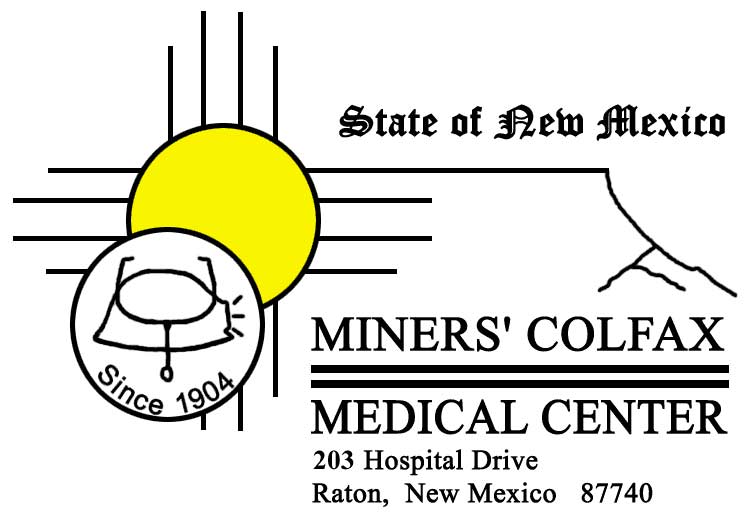Apr 6, 2020 | Press Room
SANTA FE – Gov. Michelle Lujan Grisham on Monday announced additional restrictions to disrupt the spread of the COVID-19 virus in New Mexico and instructed New Mexicans to remain in their homes or places of residence except for outings absolutely necessary for health, safety and welfare.
The order — to be issued by Secretary of Health Kathy Kunkel and effective 8 a.m. Tuesday, March 24 — closes all non-essential businesses, requiring 100 percent of the state’s non-essential workforce to work from home. As in other states that have enacted similar measures, there are exceptions pertaining to essential services for the preservation of health, safety, and well-being.
“The only way for us to stop the spread of this virus is for New Mexicans to stop interacting with each other,” said Gov. Lujan Grisham. “New Mexicans must be crystal-clear on this point: Right now, every time you leave your house, you are putting yourself, your family and your community at risk. Only by distancing from one another, by remaining home except for essential or emergency travel, can we limit the spread of this virus to the point that it does not overwhelm New Mexico.
“This exempts people who are part of the essential functions that must continue: The individuals providing meals for kids at our schools; the individuals working at health care facilities, child care facilities, public safety entities and many more. Those individuals are helping keep us operating — in a new and limited way. They deserve our profound gratitude.
“As we wait for the federal government to get states the help we need in expanding capacity and testing materials and financial assistance, staying home is the one action all of us, individually and as a group, can control,” the governor added. “Please stay home. Help protect New Mexico.”
Intended to aggressively limit person-to-person contact in the state, the amended emergency public health order closes all non-essential businesses except for remote work.
The order advises that New Mexicans “must stay at home and undertake only those outings necessary for their health, safety or welfare” and further restricts “mass gatherings” of five or more individuals in outdoor spaces.
“Does this order mean you cannot walk your dog? No. Does it mean you can’t go for a jog? No. But you should not do those things in a group — and you should be home as soon as possible,” the governor said. “This social isolation strategy will only work if we all undertake it to the greatest extent we can. That boils down to one thing: Stay home.”
The amended public health emergency order is attached to this news release.
Businesses deemed essential that may remain open are:
- Health care operations including hospitals, walk-in-care health facilities, emergency veterinary, and livestock services, pharmacies, medical wholesale and distribution, home health care workers or aides for the elderly, emergency dental facilities, nursing homes, residential health care facilities, research facilities, congregate care facilities, intermediate care facilities for those with intellectual or developmental disabilities, supportive living homes, home health care providers, and medical supplies and equipment manufacturers and providers;
- Homeless shelters, food banks, and other services providing care to indigent or needy populations;
- Childcare facilities necessary to provide services to those workers employed by essential businesses and essential non-profit entities;
- Grocery stores, all food and beverage stores, supermarkets, food banks, farmers’ markets and vendors who sell food, convenience stores, and other businesses that generate the majority of their revenue from the sale of canned food, dry goods, fresh fruits and vegetables, pet food, feed, and other animal supply stores, fresh meats, fish, and poultry, and any other household consumer products;
- Farms, ranches, and other food cultivation, processing, or packaging operations;
- All facilities used by law enforcement personnel, first responders, firefighters, emergency management personnel, dispatch operators, and court personnel.
- Infrastructure operations including, but not limited to, public works construction; commercial and residential facility construction and maintenance; airport operations; public transportation; airlines; taxis; private transportation providers; water, sewer, trash, and recycling collection, processing and disposal; gas; electrical; oil drilling; oil refining; natural resources extraction or mining operations; nuclear material research and enrichment; those attendants to the repair and construction of roads and highways; solid waste collection and removal; processing and disposal; data and internet providers; data centers; and telecommunications systems;
- Manufacturing operations involved in food processing, manufacturing agents, chemicals, fertilizer, pharmaceuticals, sanitary products, household paper products, telecommunications, microelectronics/semi-conductor, primary metals manufacturers, machinery manufacturers, electrical equipment, appliance, and component manufacturers, and transportation equipment manufacturers;
- Services necessary to maintain the safety and sanitation of residences or essential businesses including security services, custodial services, plumbers, electricians, and other skilled trades;
- Media services including television, radio, and newspaper operations;
- Gas stations, automobile repair facilities, and retailers who generate the majority of their revenue from the sale of automobile repair products;
- Hardware stores;
- Laundromats and dry cleaner services;
- Utilities, including their contractors and suppliers, engaged in power generation, fuel supply and transmission, water and wastewater supply;
- Funeral homes, crematoriums, and cemeteries;
- Banks, credit unions, insurance providers, payroll services, brokerage services, and investment management firms;
- Real estate services including brokers, title companies, and related services.
- Businesses providing mailing and shipping services, including post office boxes;
- Laboratories and defense and national security-related operations supporting the United States government or a contractor to the United States government;
- Restaurants, but only for delivery or carry out and local breweries or distilleries but only for carryout;
- Professional services, such as legal or accounting services, but only where necessary to assist in compliance with legally mandated activities; and
- Logistics and businesses that store, ship or deliver groceries, food, goods or services directly to residences or retailers.
The order is in effect until April 30.
ON ENFORCEMENT: The state has ramped up surveillance of businesses to ensure compliance. Violators of the public health order could lose their licenses to operate and face civil or criminal penalties. New Mexicans wishing to report a violation will soon be able to call the non-emergency COVID-19 state hotline, 1-833-551-0518.
ON HOARDING: In a previously issued public health order, the state, to limit hoarding, directed grocery stores and other retailers to limit the sale of over-the-counter medications, durable medical equipment, baby formula, diapers, sanitary care products, and hygiene products to three packaged items per individual. Individual New Mexicans are further urged to limit hoarding to ensure community members have the supplies they need.
ON ILLNESSES AND TESTING: New Mexicans who develop symptoms of COVID-19 infection — fever, cough or shortness of breath — should call their health care provider or the NMDOH COVID-19 hotline immediately (1-855-600-3453).
Testing is presently prioritized for those with symptoms. New Mexicans are asked to widely distribute this information about testing and travel guidelines: https://www.governor.state.nm.us/2020/03/18/public-health-advisory-testing-and-travel-guidelines-for-new-mexico/
FOR MORE INFORMATION: New Mexicans who have non-health-related questions or concerns can also call 833-551-0518 or visit newmexico.gov, which is being updated as a one-stop source for information.
###





